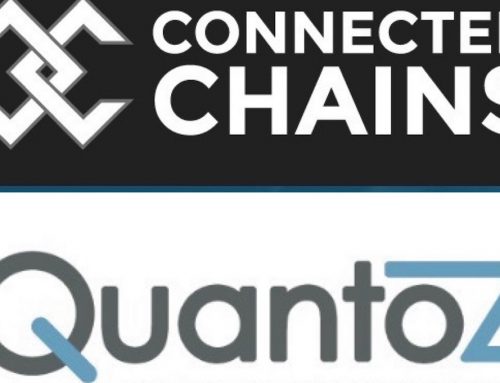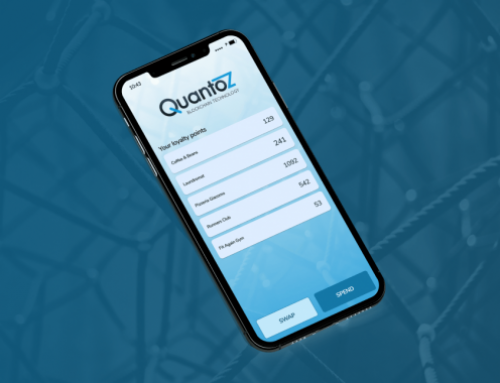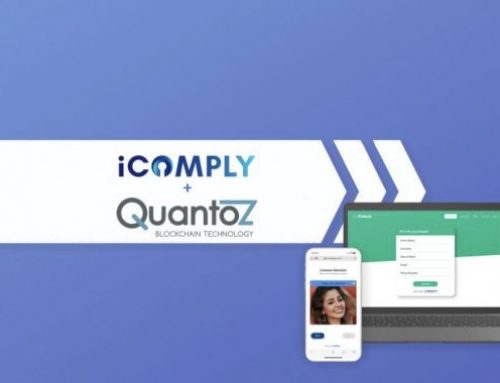Backed-up by :agile accelerator GmbH, Quantoz in cooperation with Energy21 takes the next step in exploring a new European model for local power markets.
Aiming to go beyond the level of individual business cases, blockchain startup Quantoz Technology was invited by :agile, the corporate accelerator and incubator program of E.ON, to explore a blockchain-based market model. The model should focus on local, residential power markets within the European context, starting with Germany and the Netherlands first. Energy21 will be supporting Quantoz Technology with energy market expertise.
Energy21 and Quantoz Technology published their initial vision in an article titled ‘Blockchain as market settlement solution’ (2016). With the back-up of :agile they are ready to take their ideas to the next level. In a 3-month project, these companies will further investigate and define the local market model and the required blockchain technology.
Why our current market model is constraining the energy transition
The increasing use of renewable energy sources requires more demand flexibility in order to balance the energy system. Also, our market is moving towards a new reality in which prosumers increasingly meet their energy demands locally.
Our current market model however dates back to the pre-renewables era and does not create the incentives needed to stimulate residential prosumers to share their flexibility. To the contrary, the model shows an extreme asymmetry when it comes to the balance between the residential price that can be received for production on the one hand and the residential price for consumption on the other hand. The prosumers are stimulated to use their flexibility to minimize the dependency on the public grid.
This market design bug will lead to lower grid operator revenue on the one hand and excessively increasing balancing and re-dispatching costs for system on the other hand. And as these costs are socialized with all grid users, prosumers will be motivated to reduce grid dependency even further.
This will not only create a reduction in grid use, but more important also decimate the availability of the distributed residential flexibility for the system. To maintain system balance, all kind of non-market based measures will be introduced to control production and consumption. This may lead to strict regulation of the retail energy market, decreasing system efficiency and overall increased energy costs.
In short, holding on to our current market model will lead to:
- Residential prosumers not sharing their flexibility and reducing their dependency on grid services
- Grid companies receiving less grid fees, while coping with increasing costs
- Supplier companies becoming less relevant to prosumers
- Overall increasing inefficiency costs of the renewable power system
The distributed permissioned blockchain solution
A new market model at local level – we are looking at for example communities defined by a postal code area – should offer incentives for residential prosumers to share flexibility and maintain grid connectivity services. This will allow the overall energy system to absorb an increasing amount of renewable energy production while operating at the lowest total social costs.
Such a market model will use transaction intensive, near-real-time energy and flexibility auctions. It will be difficult to keep a low cost-to-serve when local system operators will stick to their traditional financial settlement processes and applications.
Therefore a blockchain solution is proposed that fulfills a local system operator role and settles the local market transactions. A distributed permissioned blockchain solution can run at very low operating costs while performing at high availability and security levels.
Moving towards a new local market model based on blockchain technology will lead to an energy market in which:
- Prosumers benefit from (active and passive) flexibility and keep grid connectivity services
- Grid operators keep servicing all prosumers for affordable fees (grid and new local system services)
- Energy suppliers can create new services for prosumers
- Increasing availability of flexibility for system operators and lowest possible social costs of the renewable power system
From market model to business cases
In The Netherlands, the development of this local model design was initiated in December 2016. With help of :agile accelerator GmbH, Quantoz and Energy21 will further define the local market model and blockchain technology.
The main project goals are:
- defining basic new local power market process model for Germany (and The Netherlands)
- defining blockchain solution (including best fit core blockchain platform, transaction types, open API functionality, permissions, rules and roles)
- exploring business opportunities (stakeholder analysis, acquisition of proof-of-concept and consultancy projects and roadmap for new business models)
The new local market model will be based on several USEF (Universal Smart Energy Framework) principles, like the three-axis model and the plan-operate-settle cycle (see also the publication ‘Blockchain as market settlement solution’).
About the companies involved in this project
Quantoz Technology BV is the principal project lead for this project and brings blockchain knowledge and implementation experience. Quantoz is a blockchain technology startup that envisions “technology as enabler”. Blockchain solutions are (by definition) operated by multiple participants and roles. Therefore, it is key to create a ‘market model’ containing the right incentives for all participants to ensure successful technology implementation.
Energy21 BV will cooperate with Quantoz on designing a new power market process model. Energy21 is an energy market consultancy and software implementation company working for suppliers, grid operators, transmission system operators and regulators. The consultants of Energy21 have experience with the European wholesale energy market process model and the retail processes in Belgium, The Netherlands and Germany.
:agile accelerator GmbH is the corporate accelerator and incubator program of E.ON. :agile nurtures new business ideas and brings them to life using knowledge from the energy sector. :agile started in summer 2013 to support one of E.ON’s many goals: promoting innovation. Startups and founders can apply to the :agile program with their business model and when accepted be supported by coaching and mentoring, funding and facilities.




